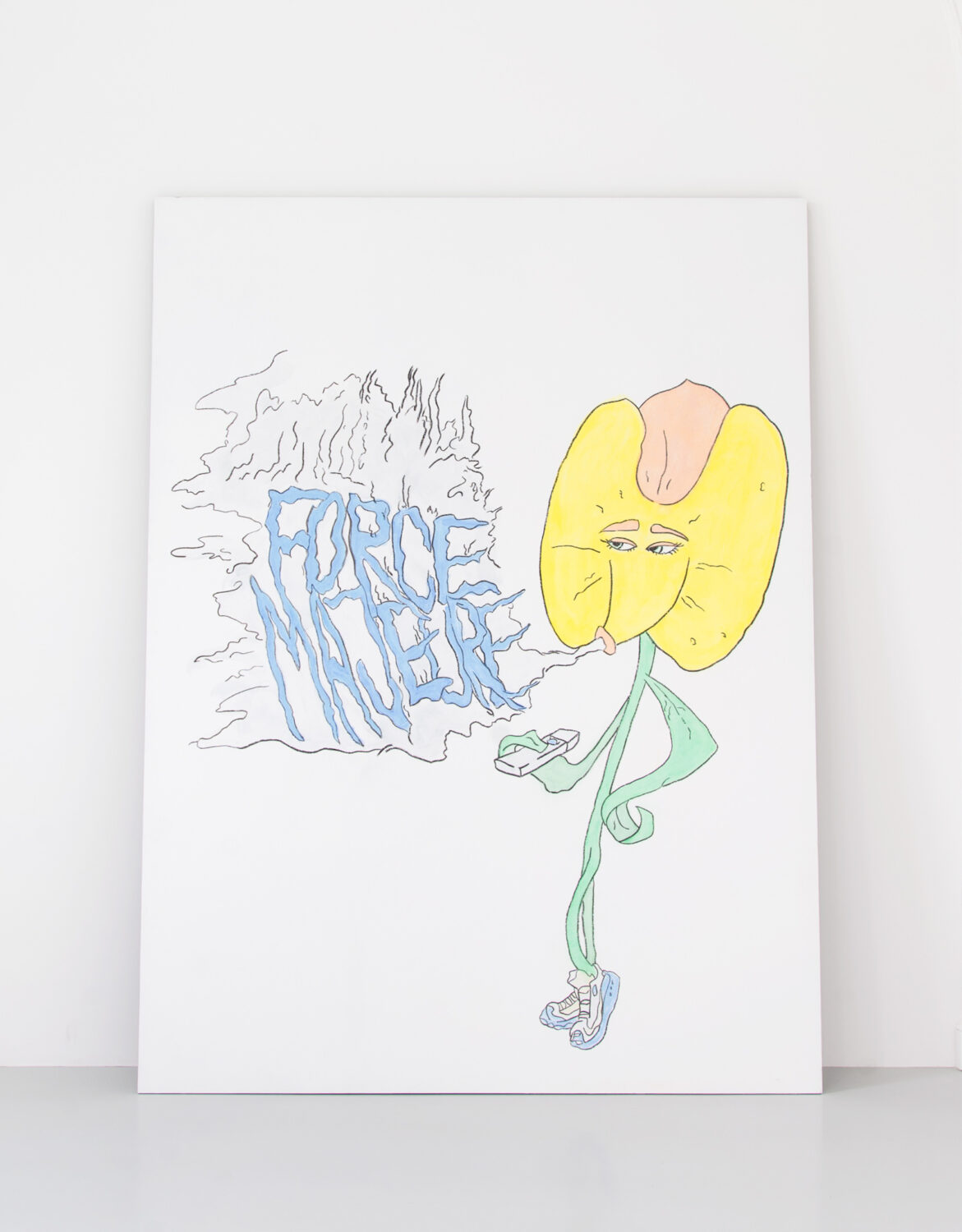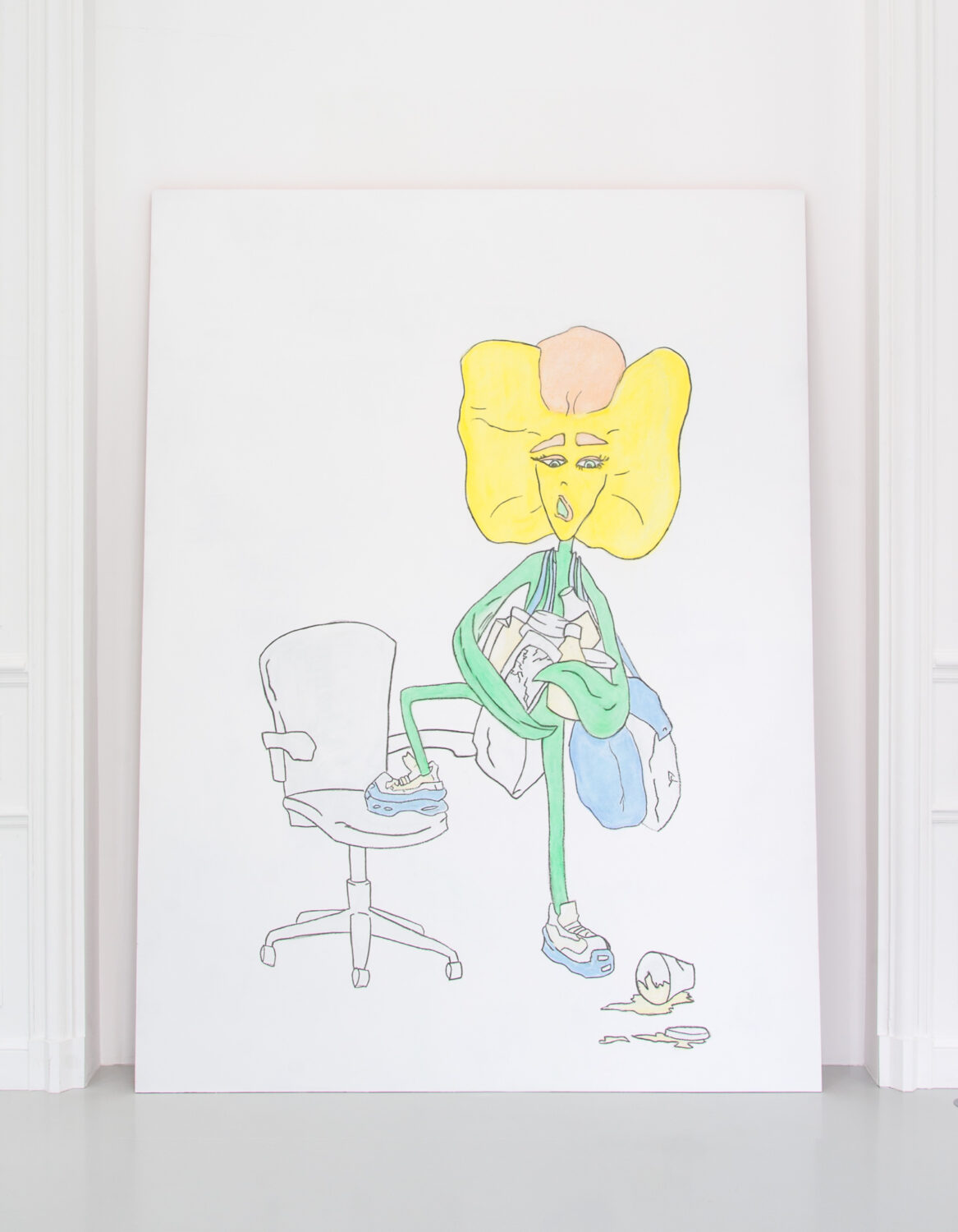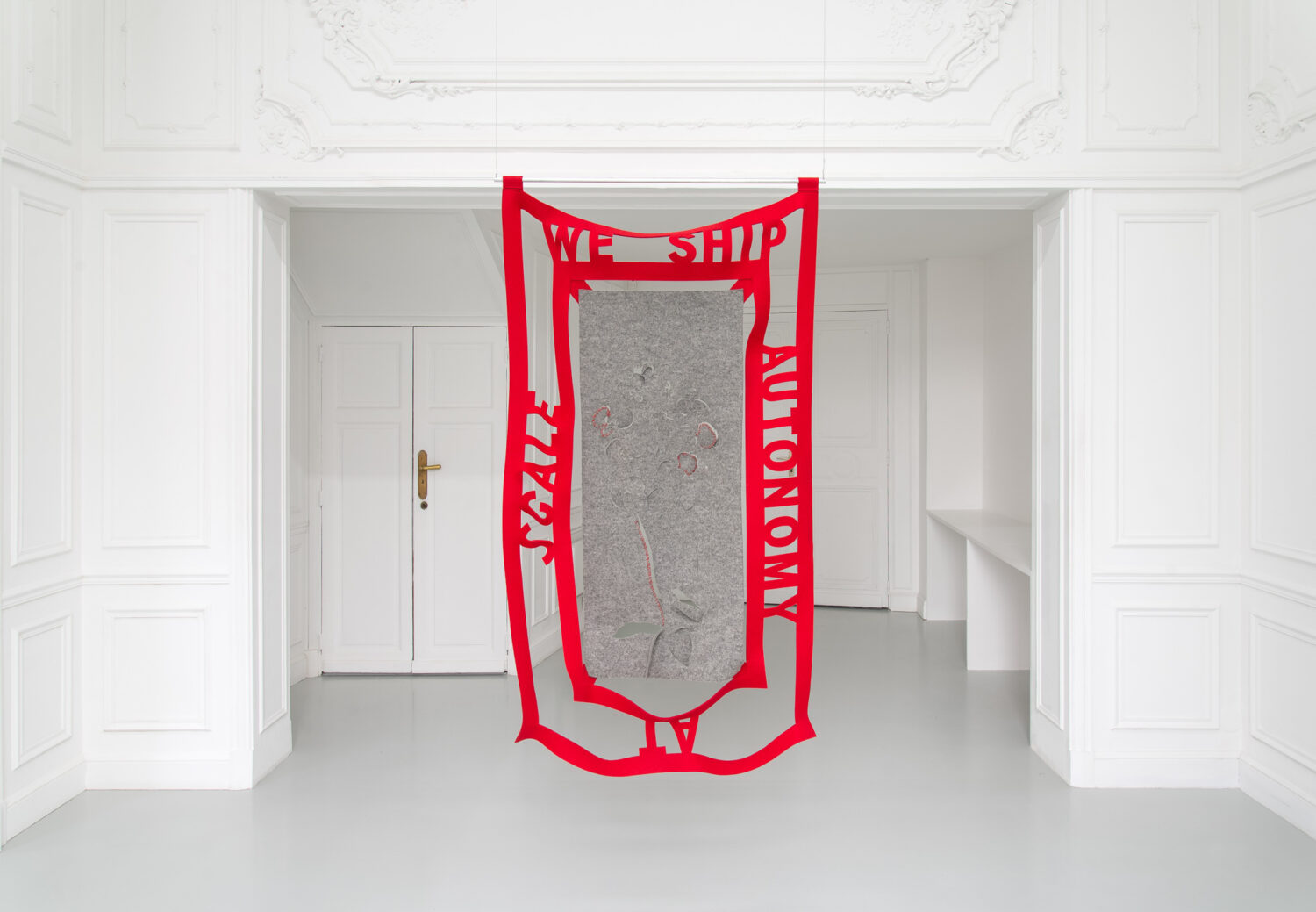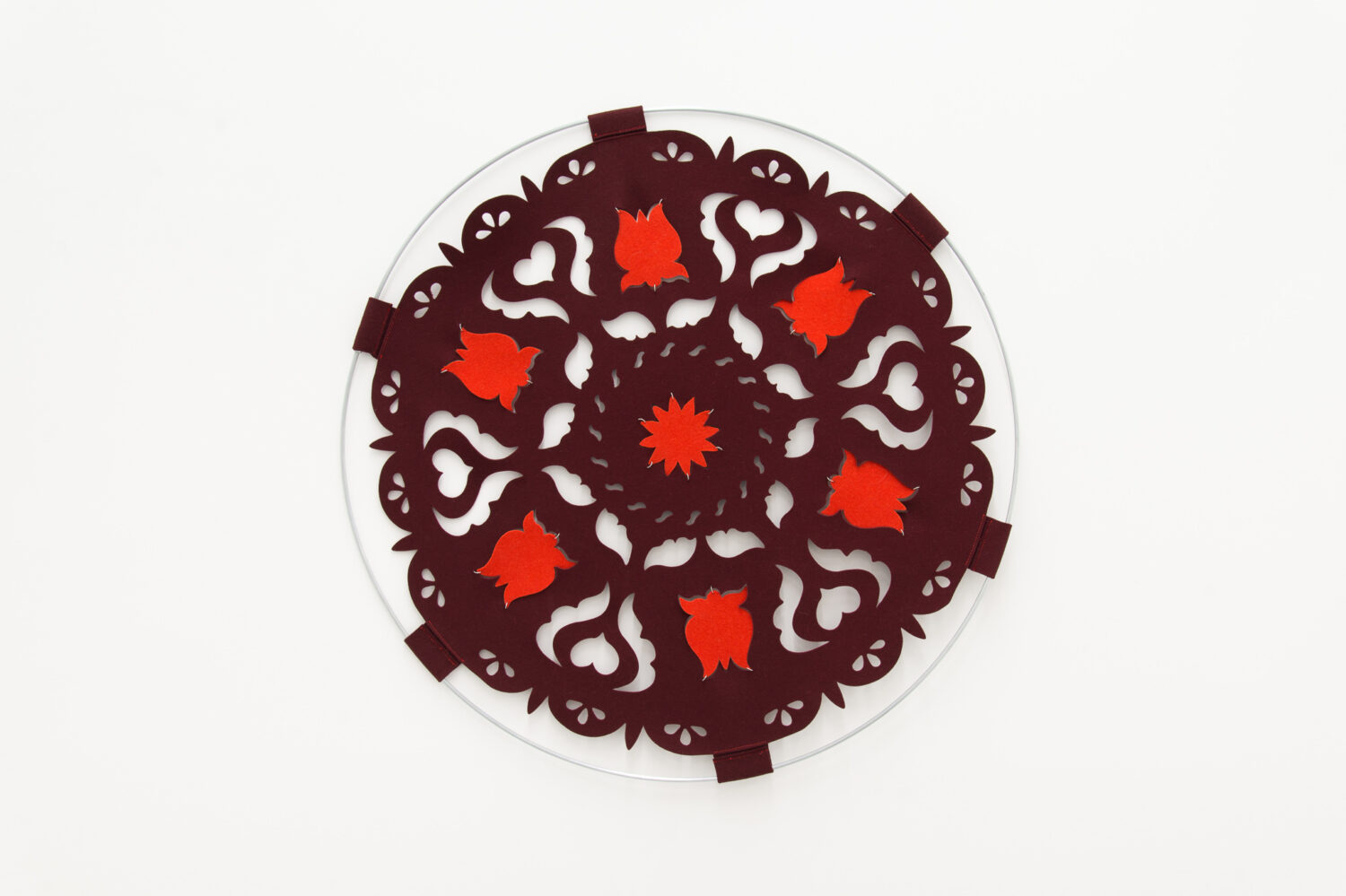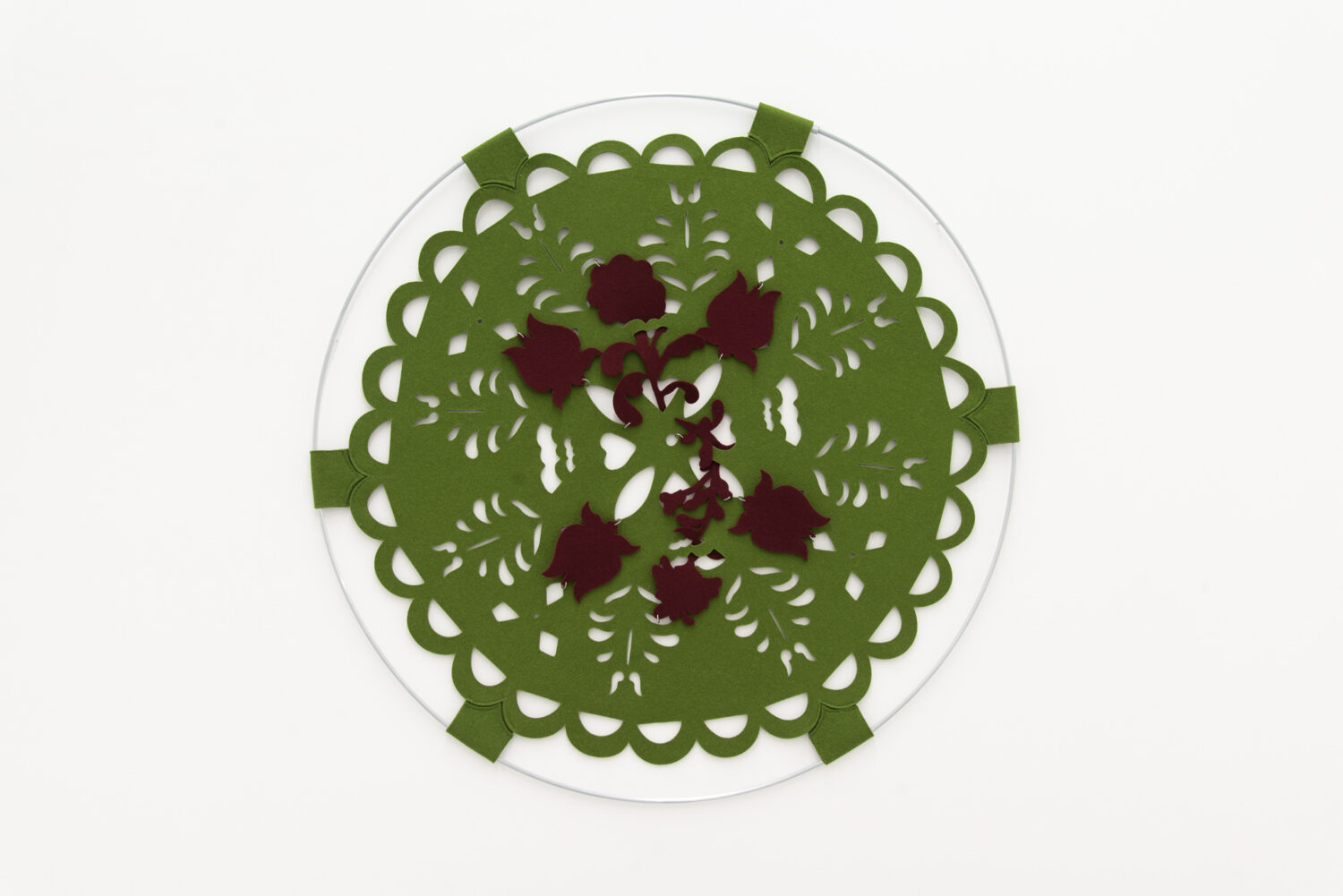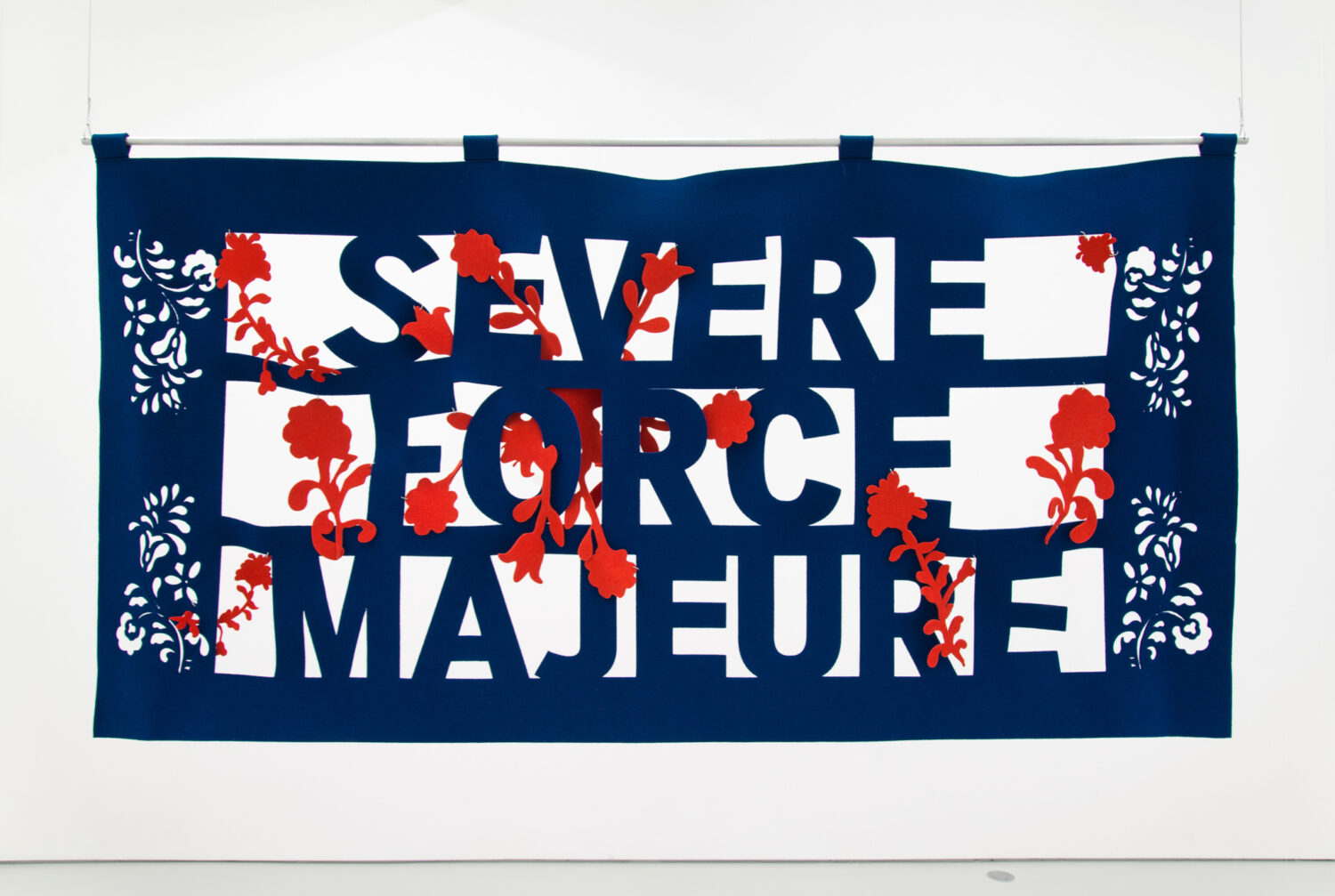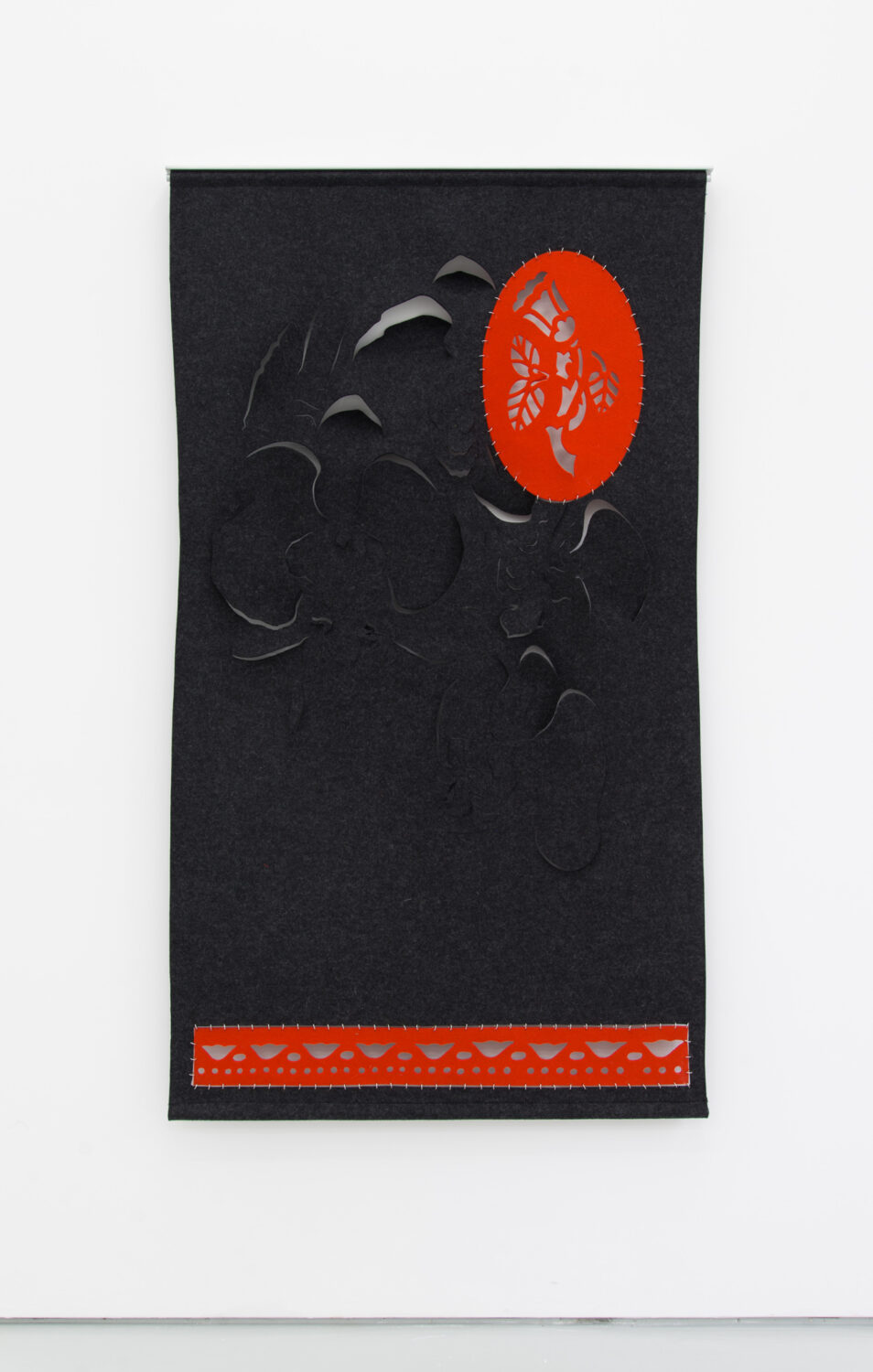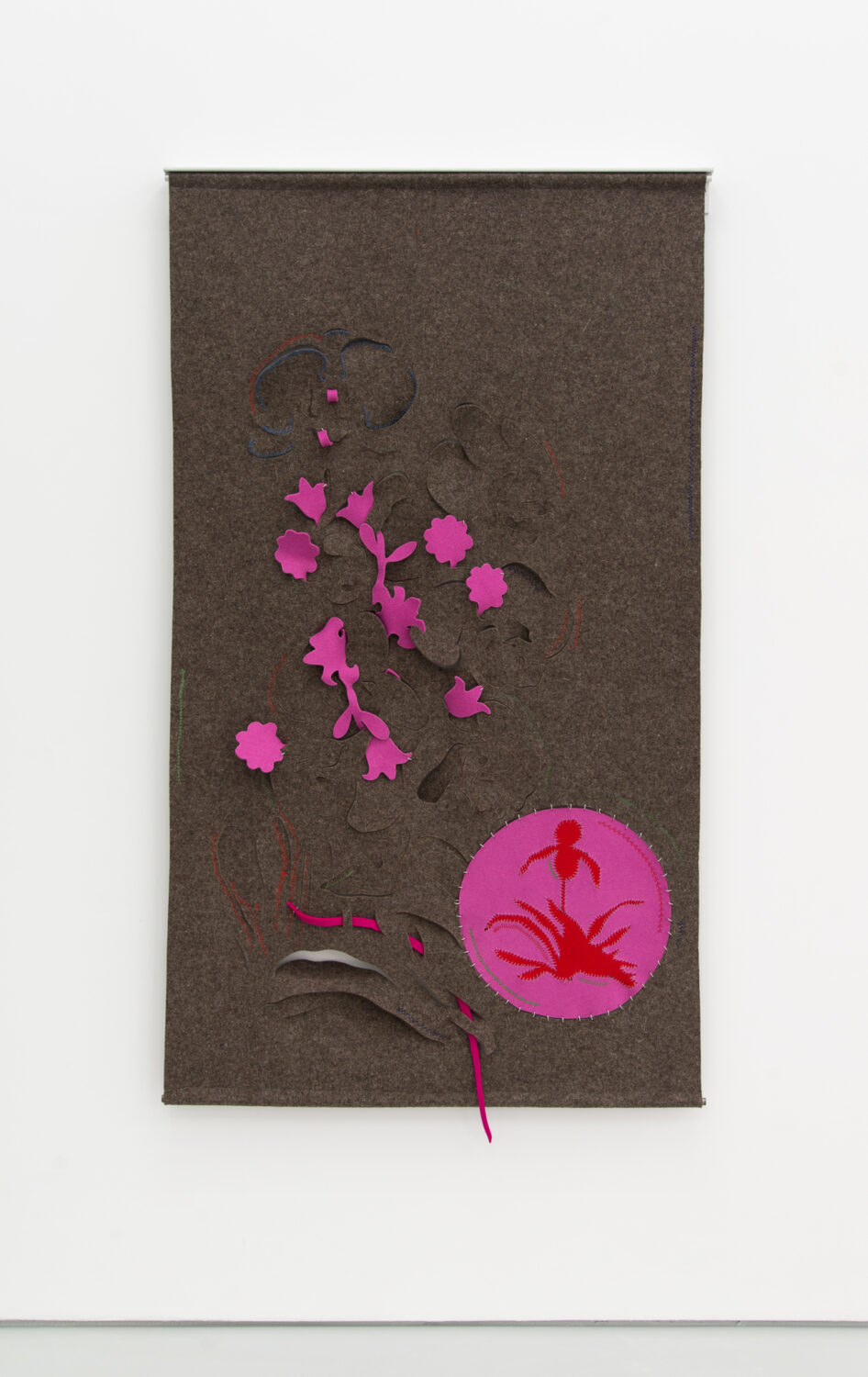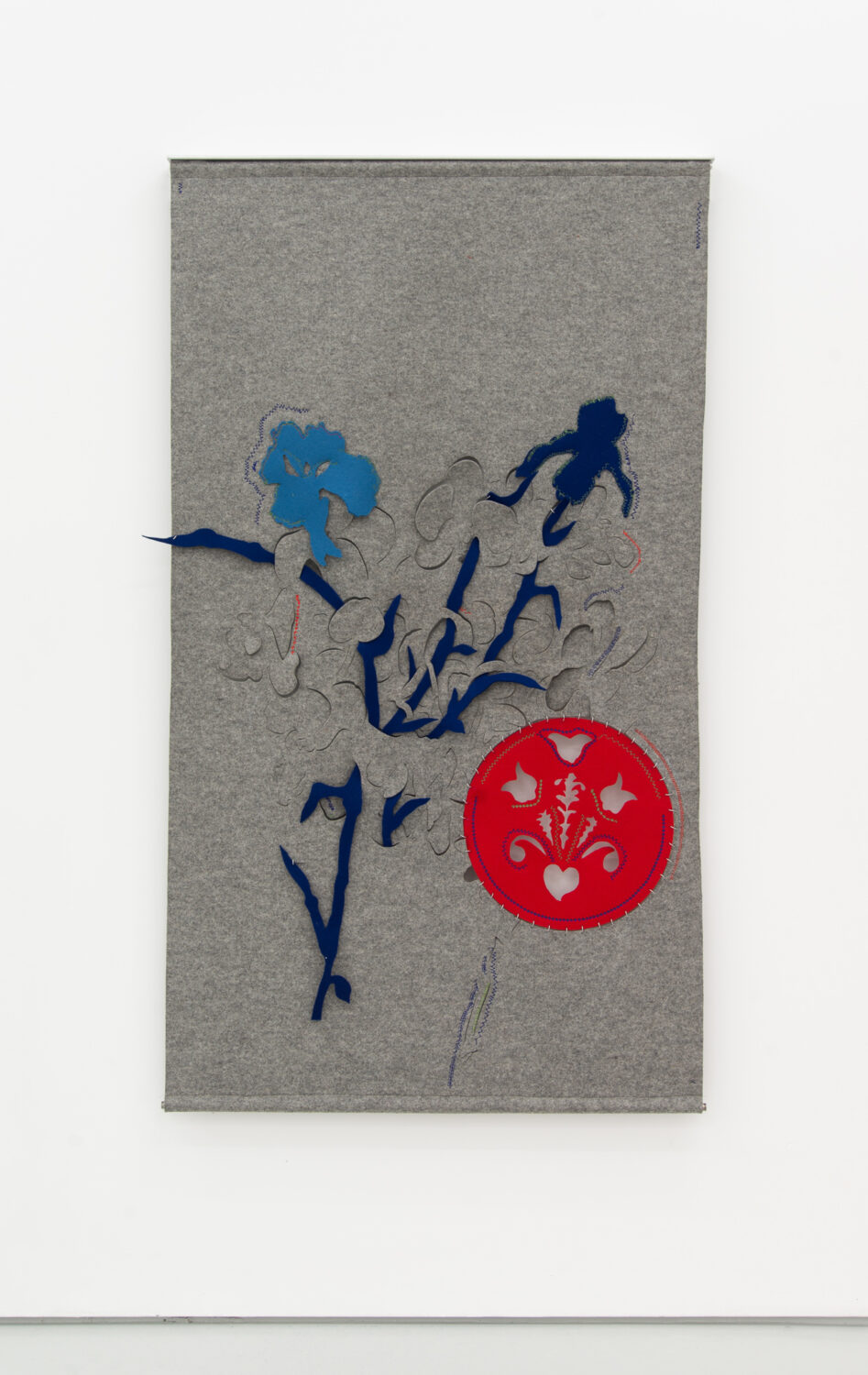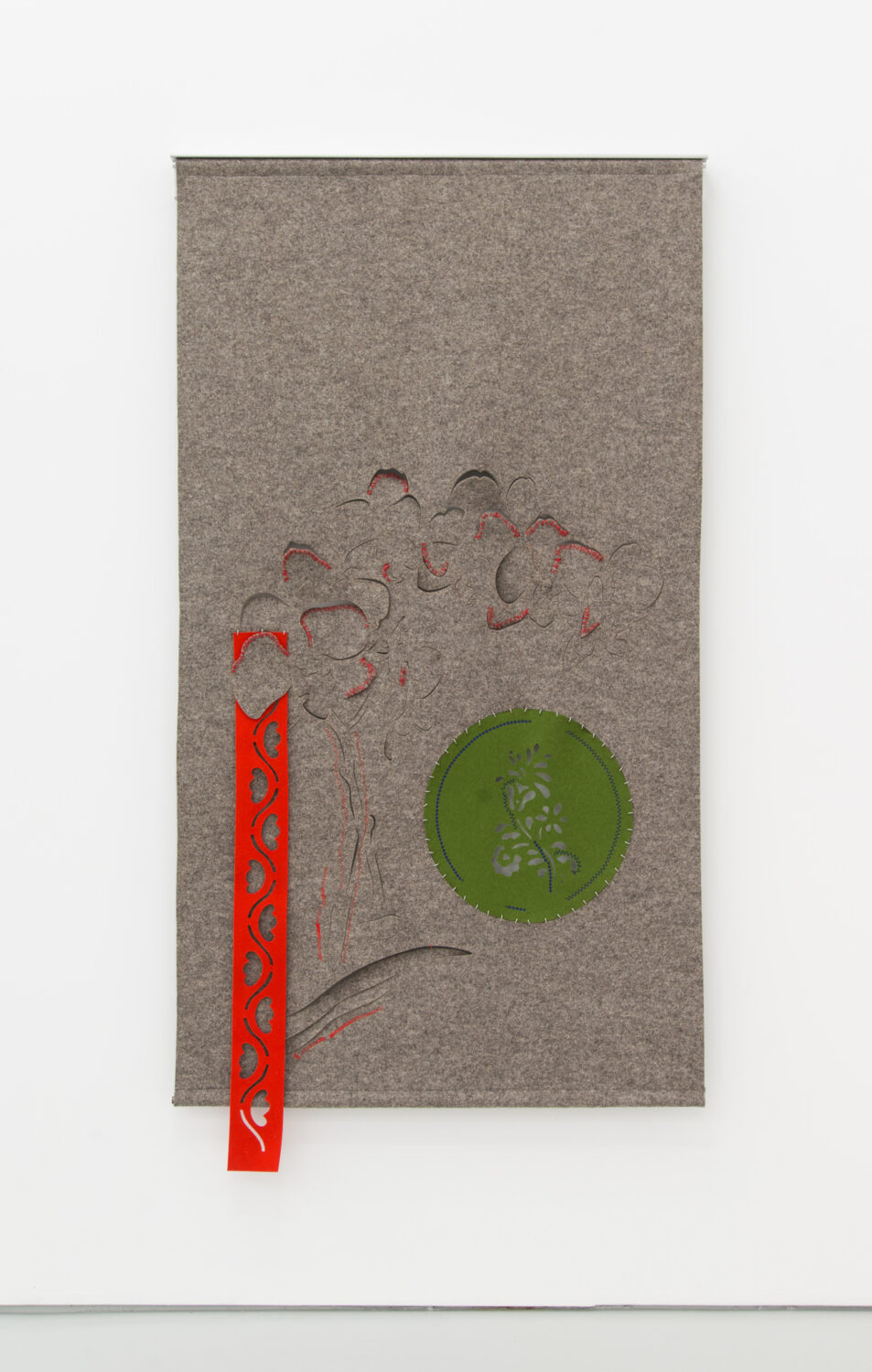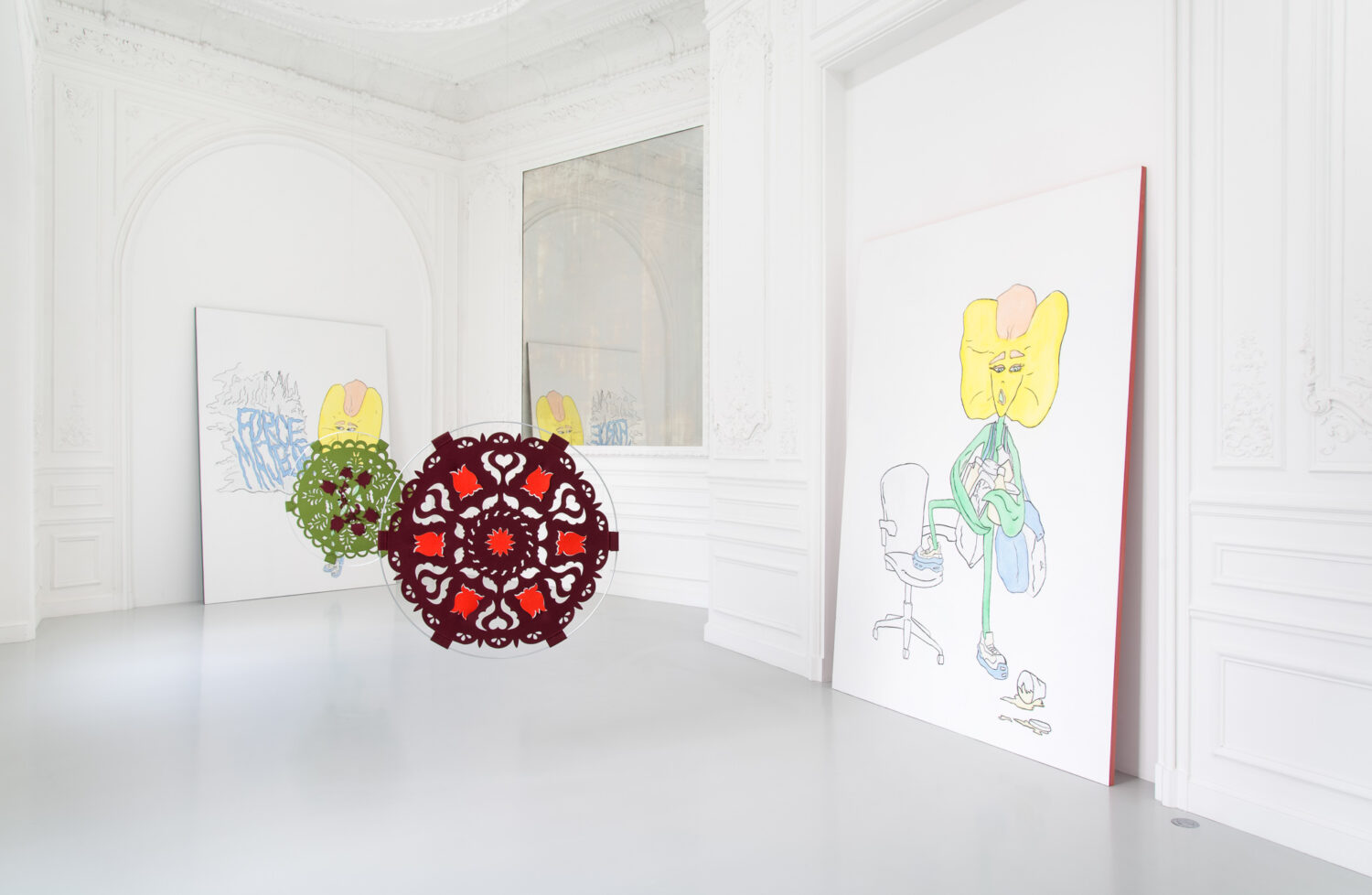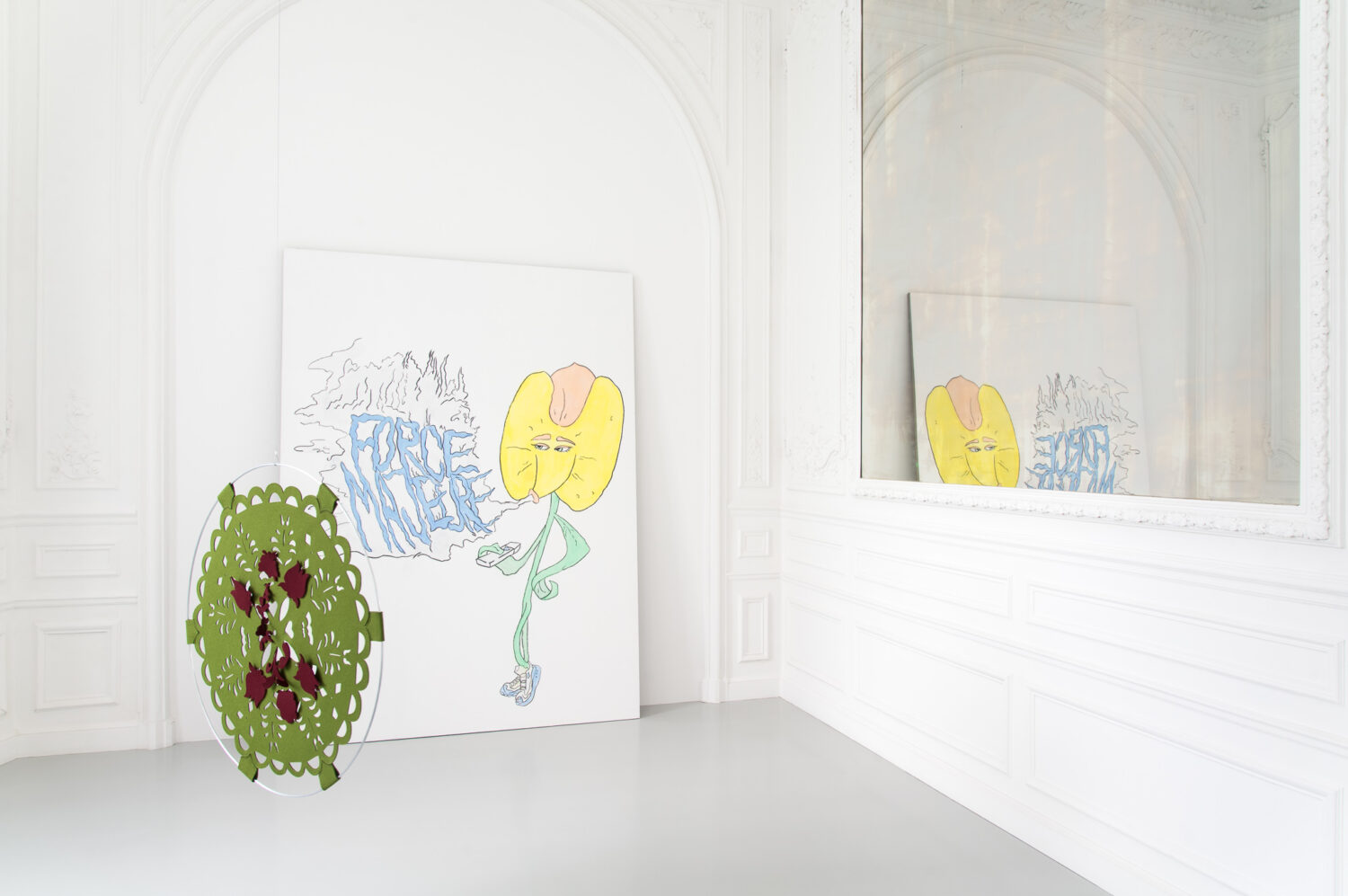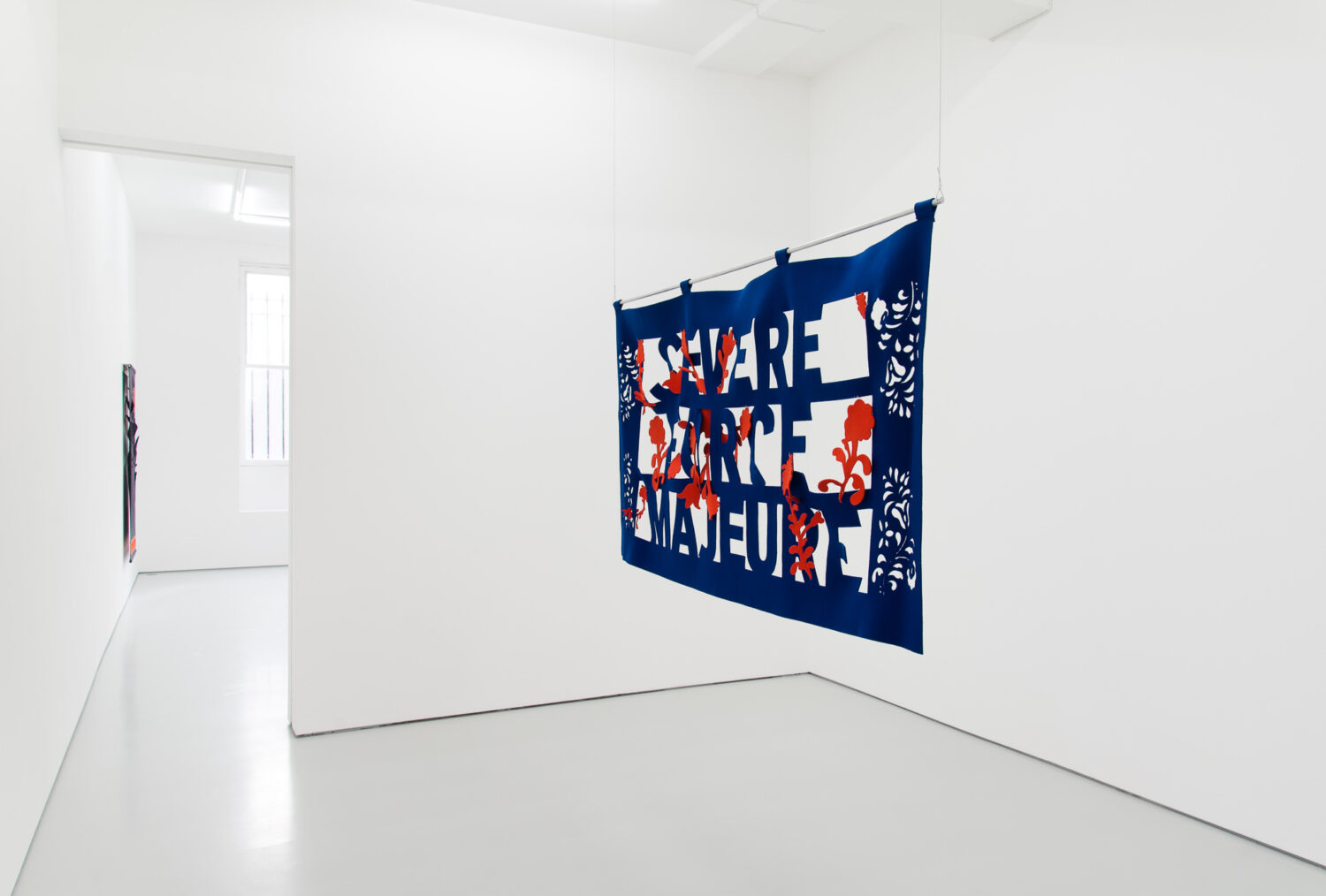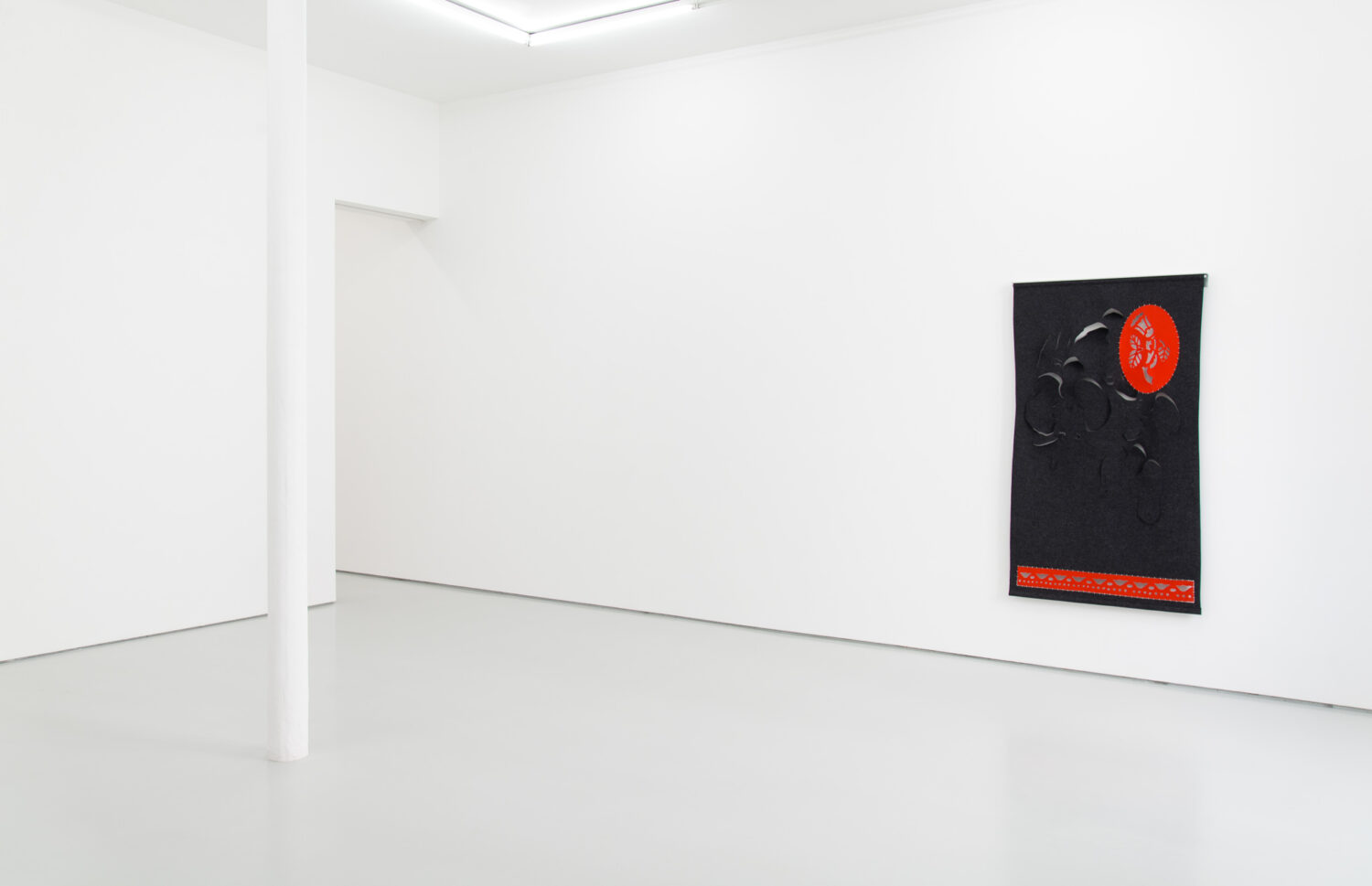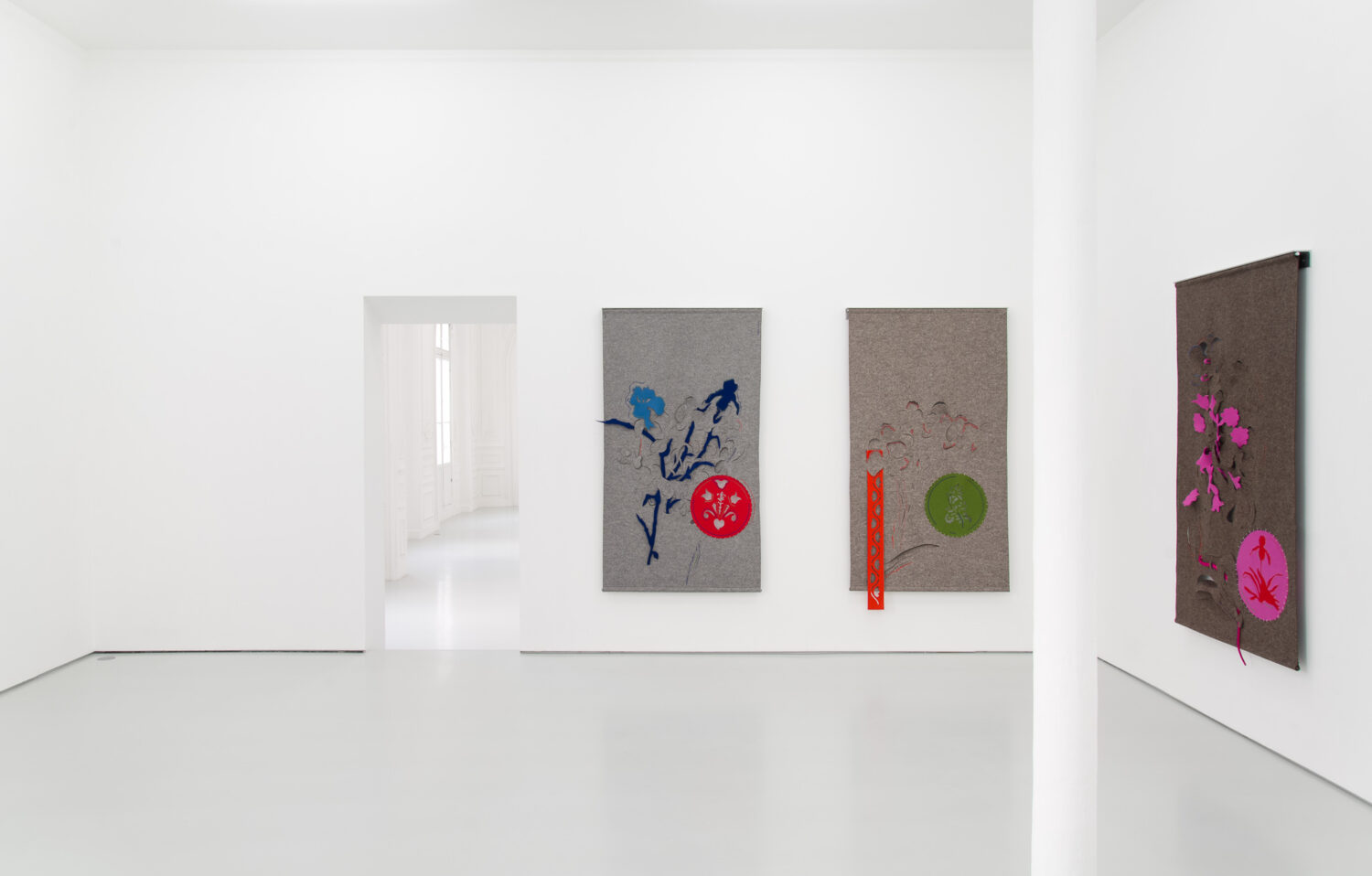

Past
Dena Yago
Force Majeure
01 Jun - 06 Jul, 2019. Paris
Exhibition details:
Dena Yago
Force Majeure
Jun 1 – Jul 6, 2019
Gallery:
1, rue Fromentin
75009 Paris
Image:
WE SHIP AUTONOMY AT SCALE, 2019
Pressed wool, silver, aluminum
160 x 91 cm / 63 x 35.8 in
This is a proposal for subterfuge. Occupying from the inside, an act of espionage. Of moves taken to the left, taken again to the right.1
1 Industrial espionage is steeped in history, espionage being considered the second oldest profession. As a means for nation building, industrial espionage rapidly evolved in the 1700 and 1800s under regimes of Napoleon, Frederick the Great and Otto Von Bismarck. During this time it flourished at the intersections of statehood, competition and industry. Of particular note is the case of a Catholic Jesuit priest Francois Xavier d’Entrecolles. A serving missionary in China, in 1712 the priest gained access to the center of royal porcelain manufacture in Jingdezhen. Through a series of letters, the priest captured in minute detail the secrets of porcelain production, secured since the 13th Century. From this point, porcelain evolved out from under a Chinese monopoly.
This is a proposal for an affair. A seminal and short-lived excursion into the relations of another. 2
2 The Story of a Nobody is a novella, set in late Romanov/pre-revolution St.Petersburg, written by Anton Chekhov and published in 1893. Hungry to be ‘somebody’ the anonymous protagonist, a political radical, is charged with infiltrating the household of a high-ranking aristocratic official, Orlov. The mission is to assassinate Orlov on behalf of the protagonists’ ‘cause’. Whilst masquerading as a servant, the protagonist becomes embroiled in the psychodrama of the household politics observing the irreverence and frivolities of his wealthy masters. As his disguise reaches climax he begins an affair with Orlov’s neglected lover Zianida although his resolve in his assassination mission deteriorates. The moral ambiguity of this novella and particularly of the protagonists’ waning political zeal is of incredible light ironic touch from Chekov, placing great responsibility on the reader to “make an ethical import in the gaps” left by the atmosphere of disappointment and the absence of narrative heroes.
This is a proposal for a disguise. Inhabiting the realm of others as if another. 3
3 The Bee Orchid (Ophrys apifera) is an orchid common to parts of Europe, North Africa and the Middle East. It has a protruding and furry head resembling the body of a bee, in addition to producing a scent that mimics the female bee. This decoy attracts male bees to attempt to mate with the flower head, transferring pollen during this act of pseudocopulation.
This is a proposal for organisation. Advanced organisation. Social and labour organisation concomitant with the technological aptitude of product. 4
4 Why is it that products of technological prowess do not extend the rigour of invention to the organisation of the means of production? I look to Michael Feher in his essay Self-Appreciation;or The Aspirations of Human Capital on his point of the potential role of Unions and Labour organisation in the Neoliberal condition, “While exponents of the ‘authentic’ Left denounced workfare programs as the betrayal of the welfare state…Scandinavian labour unions endeavoured to work through them. Taking stock of the fact that, in a globalized and post-Fordist environment, ensuring job security can not longer be the aim of labour unions {they} have sought instead to make the professional trajectory of workers more secure, that is to help them navigate the changes that affect their professional life…Labour unions will tend to think of themselves as providers of personal services (training, help in finding a job etc.) rather than as merely defenders of class interests. Indeed, the potential conflicts over what a person needs to navigate a flexible labour market are not simply over what types of protections will be guaranteed or over how these protections will be financed. Rather they are over the more profound questions of what constitutes the basic conditions, the criteria, and the required means for self-appreciation.”
This is a proposal of detail. Of noticing where the edge of one thing meets with another. Of observing with quiet restrain the claggy qualities of material. 5
5 Felt may be the oldest fabricated material known. It is a dense and unwoven fabric, not requiring a warp or weft, and is produced through compression, heat and moisture to mat and interlock the fibres.
This is a proposal of digestion. A rejection of absorbing class warfare into the body. You can’t chew felt. 6
6 In the UK the class system is perfectly mapped onto supermarket identities with high and low options according to aspiration or class status. Forays late on a Saturday night to the kebab shop are not democratisers of appetite rather they are exercises in class tourism. By comparison in France the ‘daily bread’ legislation dating back to the French Revolution guarantees each citizen access to a daily, fresh, quality and cheap food source, feeding all stratas of workers alike.
This is a proposal for decoration; for space a few steps besides the functional, a sensual realm on frequencies surrounding the direct operation, pulsing outwards. This space may also be declared a space of repression. An internal dialogue acknowledged through the sensuality of non-linguistic communality. Of neighbourhood through gesture, through refrain. 7
7 I am hacking the psychoanalytic term ‘repression’ to see if it has potential to encounter a methodology, which produces an affect that is intended and unanticipated. I am untethering its meaning from the negative connotation (trauma) but keeping the aspect of an embedded behaviour or action created from a specific felt experience or encounter that is lateral and related to the significant experience.
This is a proposal for an erotics of infrastructure. 8
8 I am indebted to Dena Yago for participating in a workshop the Erotics of Infrastructure during August 2018 in London. This workshop proposed how artists offer an eroticisation of infrastructural organisations, policies and operations to re-considers how the body can have agency. The series of events and workshops explored the immense potential of the erotic as an emancipatory approach, as one, which implies a legitimate provider of viable solutions for deeply iniquitous conditions, generated from a discreet logic of artistic practice.
Text by Rachal Bradley
Thank you to Rachal Bradley, Darko Ristevski, Jackson Beyda, Madeline Hollander, Samantha Kassay, Hannah Hunt and Sam Korman
